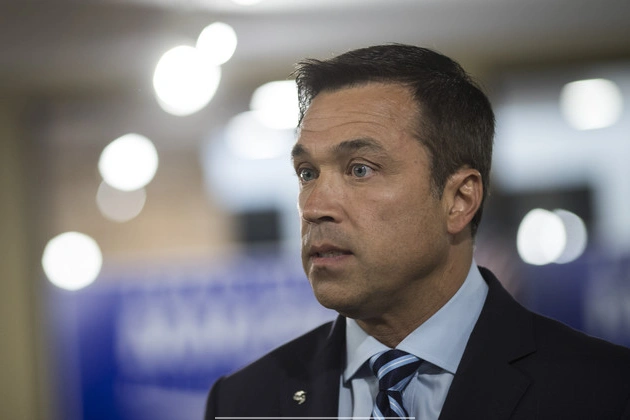
President Donald Trump stirred controversy with his recent pardons of a former New York congressman and a three-term Connecticut governor. These pardons are part of a clemency spree that has also included reality TV stars and a Virginia sheriff.
The Pardons
Trump used his presidential discretion to grant clemency to former New York Rep. Michael Grimm, who pleaded guilty to tax evasion, and former Connecticut Gov. John Rowland, a once rising star in Republican politics brought down in a corruption scandal.
Grimm served in Congress from 2011 to 2015, where he developed a reputation for his brash treatment of the media. The Republican’s political career came to a halt when he pleaded guilty to aiding and assisting in the preparation of a false tax return and concealing more than $900,000 in gross income.
He spent seven months in prison and attempted a political comeback in 2018, losing in a GOP primary battle for his former New York City district.
Rowland, the governor of Connecticut from 1995 to 2004, was convicted in two separate federal criminal cases. The first spurred his resignation from the governor’s mansion. In the second, he was sentenced to a 30-month prison term in 2015 for his illegal involvement in two congressional campaigns.
Controversy Surrounding the Pardons
The pardons coincide with the installation of Ed Martin as the Justice Department’s new pardon attorney. Trump had nominated him to be U.S. Attorney for the District of Columbia, but pulled the nomination in the face of Senate opposition to his confirmation.
The White House on Monday announced Trump was planning to pardon Todd and Julie Chrisley, who starred in a TV show that ran for ten seasons on USA Network before their convictions on fraud charges. Trump on Wednesday said he is also considering pardons for the people involved in a plot to kidnap Michigan Gov. Gretchen Whitmer.
These controversial decisions have raised questions about the president’s clemency choices and the implications they may have on the justice system.











